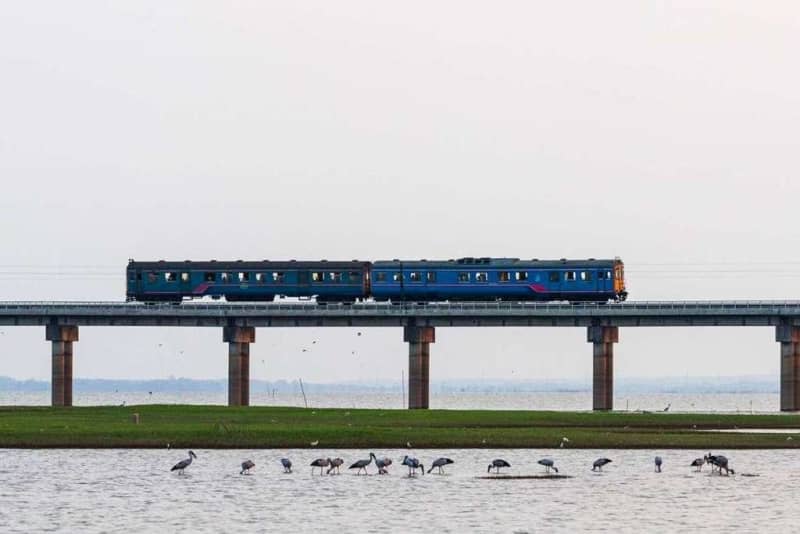Suriya' insists on continuing the 20-baht flat-rate electric train fare policy, preparing to propose to the new cabinet to extend the measure, guaranteeing all colors and lines by September 2025, preparing to hire consultants to study the repurchase of electric train concessions in detail, and assigning the Office of the Public Sector Development Commission (OPDC) to study the method of collecting traffic congestion fees, using foreign models, confident that it will help reduce the cost of living and solve traffic congestion problems, with the public benefiting the most. Mr. Suriya Juangroongruangkit, Deputy Prime Minister and Minister of Transport, revealed the policy of the maximum electric train fare of no more than 20 baht or 20 baht for the entire line that according to the policy of 20 baht for the entire electric train line in 2 projects, namely the Red Line Commuter Train and the Purple Line MRT since October 16, 2023, it was found that passengers responded very well. The Department of Rail Transpor t (DRT) reported that the number of electric train users on both lines (data as of June 2024) increased by 26.32% compared to the same period last year. The data also showed that the number of passengers on the Red Line suburban train increased by 51.15% and the number of passengers on the Purple Line MRT increased by 17.39% compared to the same period last year. Meanwhile, the number of passengers continues to increase steadily. In July 2024, there were 2,166,099 passengers on the Purple Line MRT, up from 2,014,473 passengers in June 2024. Meanwhile, the number of passengers on the Red Line suburban train increased by 982,825, up from 899,389 passengers in June 2024. Meanwhile, it was confirmed that the policy of 20 baht flat rate electric train fare will continue and is ready to propose to the new Cabinet to extend the measure, which will expire on November 30, 2024. In addition, the draft of the Joint Ticket Management Act B.E. ... is currently being drafted, in line with the plan that states that the 20 baht flat rate electric train fare will definitely be applicable on all routes and all colors by September 2025, in order to reduce the cost of living for people traveling. Mr. Suriya continued that the idea of buying back the concession for the electric train project from the private sector to the government is currently preparing to hire consultants to carefully study the details of the idea in every dimension, including considering the pros and cons and calculating income and expenses on a daily, monthly and annual basis. The goal of buying back the electric train project is to allow people to receive electric train services at a cheaper price and reduce the cost of travel for people. They also want to push for the policy of 20 baht for the electric train fare for the entire line, confirming that it will not affect the private sector that is currently a contract partner and will receive appropriate income back. 'This consideration of the electric train buyback approach is not about seizing the concession back from the private sector, but rather about buying back the train system, including the right to operate the train, and then hiring the same private sector to operate the train, by changing the contract from PPP Net Cross to PPP Gross Cost, which will benefit the public the most. If the study process is complete, the public will be informed of the progress,' said Mr. Suriya. Mr. Suriya continued that he has assigned the Office of Transport and Traffic Policy and Planning (OTP) to conduct a study and analysis of the collection of congestion charges to study the feasibility of such operations and to transfer the revenue from the collection of congestion charges to the Infrastructure Fund to be established by the Ministry of Finance to support the campaign to encourage people to use public transportation more, as well as to solve traffic congestion problems. The latest report from the Office of Transport and Traffic Policy and Planning (OTP) is that it is currently requesting support for the study of the Co ngestion Charge from the UK PACT unit by the UK government to study the feasibility of setting a policy to determine the format, methods, and fees for bringing private cars into areas with high traffic congestion. It is necessary to study measures that are appropriate for the context of Bangkok (BMA), its vicinity, and Thailand, where the development of electric train and public transportation systems in those areas must be comprehensive and convenient to use. For the collection of traffic congestion fees, it has been widely used in many countries such as the United Kingdom, Italy, Sweden, Singapore, etc. It is implemented to support and encourage people to use public transportation more. It also helps reduce pollution and greenhouse gas emissions, as well as solve traffic congestion problems, which is in line with the sustainable development goals and the country's greenhouse gas reduction goals. However, before this, the Office of the National Economic and Social Development Board (ONEP) had previously con ducted a pre-feasibility study of the use of the Congestion Charge measure with support from the German International Cooperation Organization (GIZ). Source: Thai News Agency
Search
Recent News
- Election Commission prepares for election of MPs in Constituency 1, Phitsanulok this week.
- “MP Chatchawan” demands public utility system, vows to fully investigate
- “Suriya” declares that in September 2025, electric trains will be 20 baht for all lines.
- “Pichai” believes that the economy will recover soon, asks not to attack Chinese imports
- “Chulaphan” points out that “casinos” are just a fraction of the investment.
- Pushing ‘Entertainment Complex’ to create new money and attract investment
- The Prime Minister’s Office invites donations to help flood victims in the North.
- “Phrompong” submits a request to the Election Commission to remove “Big Pom” over the audio clip issue.
- The Prime Minister visits the temporary shelter for flood victims in Chiang Rai.
- EOD scans the Deputy Prime Minister’s room at Government House.


